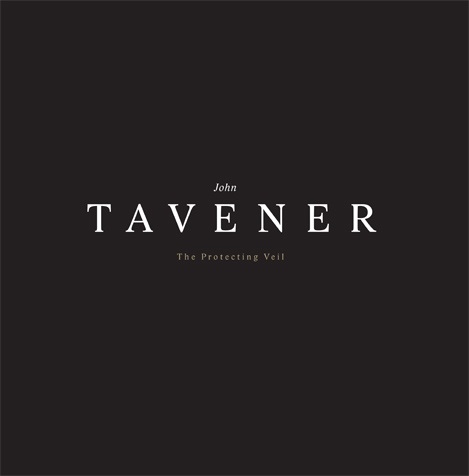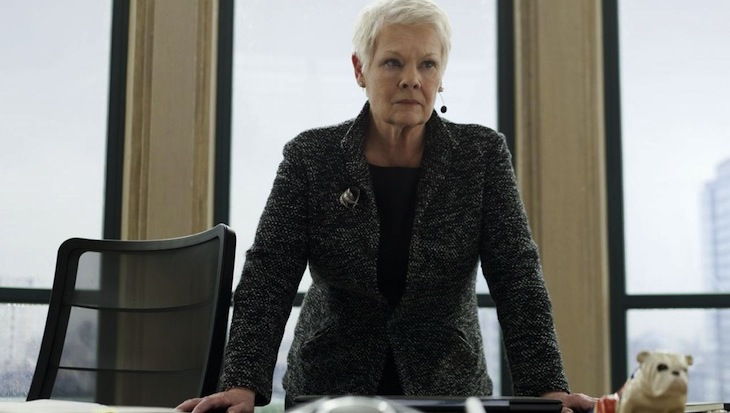Reissue CDs Weekly: John Tavener
Definitive new edition of the reflective The Protecting Veil
 John Tavener: The Protecting Veil
John Tavener: The Protecting Veil
 John Tavener: The Protecting Veil
John Tavener: The Protecting Veil
“A little skill, a little heart, that’s all,” wrote the 70-year-old Rossini as epigraph to his late, not so small and not always solemn mass. It’s not all, of course. This last major self-styled “sin of old age” (péché de vieillesse) stands in a similar relation to his final, epic opera Guillaume Tell as Verdi’s Falstaff does to his Don Carlos. Only in Rossini’s case the gap was longer, nearly 35 years, and no Otello intervened (Rossini had composed his own operatic version of Shakespeare’s play back in 1816).
The Night of the Hunter is not recorded as having charmed critics when released in 1955, but its reappearance in cinemas means it can be seen for what it was: a dark, frightening and intense film which questions the nature of faith and what happens when evil comes to town.
A cynic might say that the presenter of a series entitled Places that Don't Exist is perfectly qualified to go on a long walk to look for religious revelation. In keeping with his past explorations of wild places, Reeve's commentary was better on scenery than spirituality. Yet he didn't have the time to walk the entirety of any of his routes, giving his narration a slightly distant, disjointed feel.
We first see the bank clerk, who can’t bear his dull life, serving behind the cashier's till, like an automaton. In Melly Still's hugely inventive, visually stunning multimedia production of From Morning to Midnight – Georg Kaiser's fearlessly weird German Expressionist drama from 1912 – Adam Godley's Clerk starts out as a desiccated nonentity, nose to the grindstone.
Is anyone else sick of creepy brotherhoods skewering the transcendent in Mozart’s and Wagner’s late operas? Both Sarastro’s cult and the company of the grail are in sore need of change - "fresh blood" would be an unfortunate term under the circumstances - when we first encounter them. But both Simon McBurney’s production of The Magic Flute at English National Opera and now Stephen Langridge’s unleavened Royal Opera Parsifal suggest that these are sects not worth joining or saving.
You may have noticed an unholy silence from theartsdesk in the immediate aftermath of Sir John Tavener’s death a week ago today, just under three months short of his 70th birthday. Three of us in the classical team felt we just didn’t know his music well enough in the round, or care enough, to give an authoritative judgement.
In 1998, Judi Dench slayed audiences on the London stage in Filumena, playing a former prostitute who learns belatedly to cry. The tears come more quickly - both for Britain's best-loved acting Dame and her public - in the comparably titled Philomena, the Stephen Frears film that tells an otherwise entirely dissimilar story about a doughty Irishwoman determined to locate the son wrenched from her a half-century or more before.
The working-class widow's accomplice in a quest that turned the real Philomena Lee into a publishing sensation is onetime BBC journalist Martin Sixsmith (Steve Coogan), who takes up the elderly woman's cause rather than write the weighty tome on Russian history that nags at his loftier journalistic impulses. Nor does it hurt that he has a beady-eyed Fleet Street editor (Michelle Fairley) thirsting for a scoop and to that end funding the pair's travels up to and beyond the point that Philomena, for one, ponders whether the pair ought not to call it quits.
That they persevere is no surprise given the film's origins in Sixsmith's 2009 non-fiction account of an odyssey that led this unlikely duo down many a blind alley and bureaucratic impasse before reaching a conclusion that finds room for anger aplenty amidst the sentiment. Nor will it come as news to hear that the odd couple centre-screen manage along the way to trade various life lessons before arriving at a (minimum) three-hankie denouement whose success in artistic terms owes something to that feeling of barely suppressed rage. It helps to have in Frears an abidingly honest director whose integrity is matched every step of the way by his sweetly wigged and accented leading lady. In lesser hands, this could have been merely the tale of a cute old Irish dear (Philomena more or less announces herself as that at the start) and the pent-up Oxbridge type who starts to soften under her tutelage. But just when the divisions between the two look set to go the standard-issue route, the film commendably widens its focus, stirring Reagan-era politics, the oppressiveness of the Catholic church, and the perennial appeal of the romance novel into an ever-thickening moral brew. You leave the film moist-eyed, to be sure, as well as wise to the hatred attendant upon so many in life. And that Philomena without a trace of sanctimony refuses to let into her heart.
It helps to have in Frears an abidingly honest director whose integrity is matched every step of the way by his sweetly wigged and accented leading lady. In lesser hands, this could have been merely the tale of a cute old Irish dear (Philomena more or less announces herself as that at the start) and the pent-up Oxbridge type who starts to soften under her tutelage. But just when the divisions between the two look set to go the standard-issue route, the film commendably widens its focus, stirring Reagan-era politics, the oppressiveness of the Catholic church, and the perennial appeal of the romance novel into an ever-thickening moral brew. You leave the film moist-eyed, to be sure, as well as wise to the hatred attendant upon so many in life. And that Philomena without a trace of sanctimony refuses to let into her heart.
Coogan might be thought to pretty much be the film, since he not only co-stars but gets producing and co-writing credits, as well. And you can feel the serious actor in this celebrated comic tearing into the film's eleventh-hour broadside against organised religion in a face-off in Philomena's onetime convent that finds the magnificent Barbara Jefford in memorably implacable form. (Those who remember Peter Mullan's 2002 The Magdalene Sisters will discover equivalent terrain here.)
But the movie wouldn't be under Oscar's seasonal radar without the flinty, often funny presence of Dench, who sees out the occasional scripted lapse (an unnecessary confession scene, to start with) to compel interest in this quiet crusader - a kind woman whose will is sorely tested as she reflects upon the flesh-fearing environs from long ago that have eaten away at her since. Peter Hall once said of this actress that she possesses a unique combination of "sex and wit, wit and sex". To those qualities, add an unsparing emotional engagement, whatever the liberties taken with the actual narrative in its passage to the screen.
"Just because you're in first-class," an airborne Philomena admonishes her uppity companion, Martin, "doesn't make you first-class." (Serious product placement here for BA, by the way.) And who better to spout such homilies than that acting rarity: an unassailable class act?
DAME JUDI DENCH ON THEARTSDESK
A Midsummer Night's Dream, Rose Theatre (2010). Judi Dench is a glorious Gloriana in Peter Hall's flat production
Jane Eyre (2011). Dench plays kindly housekeeper to Mr Rochester in invigorating version of the novel with Michael Fassbender and Mia Wasikowska
Skyfall (2012). Dench's M (pictured) is written out of the franchise in possibly the best ever Bond movie
The Best Exotic Marigold Hotel (2012). The Dames have it in John Madden's tale of British travellers abroad
 J. Edgar (2012). Dench as Hoover's mother lacks commitment to her American accent in flawed Eastwood biopic
J. Edgar (2012). Dench as Hoover's mother lacks commitment to her American accent in flawed Eastwood biopic
Peter and Alice, Noël Coward Theatre (2013). Judi Dench and Ben Whishaw step through the looking glass in Michael Grandage's elegiac production of John Logan's new play
Spectre (2015). Dench's M cameos in a video message beyond the grave as Daniel Craig and Sam Mendes carry on without her
The Second Best Exotic Marigold Hotel (2015). The expats are back in that rare sequel that betters its predecessor
The Winter's Tale, Garrick Theatre (2015). Judi Dench brings gravitas to Kenneth Branagh's West End season opener
The Hollow Crown: The Wars of the Roses - Richard III (2016). Dench is a matchless veteran opposite Benedict Cumberbatch chills's crook-backed king
Overleaf: watch the trailer for Philomena
Russell Brand, as I've written before, divides the room. Well, not the beautifully refurbished 3,000-seat Hammersmith Odeon in London, where his faithful gathered for the past two nights on his mammoth international tour, but more generally. There are those who find his – and I use the word deliberately – cocksureness irritating, or his loquacity a ridiculous affectation.
Is this the year’s most controversial play? When it opened at Edinburgh in August, David Greig’s The Events created a stir because its depiction of the aftermath of an atrocity is reminiscent of Norway’s Anders Breivik and the 2011 Utoya shootings. The more lurid commentators denounced this as exploitation theatre; concerned liberals shook their heads. But, with the play now visiting London, audiences have the chance of appreciating a much deeper work than the fuss suggested.